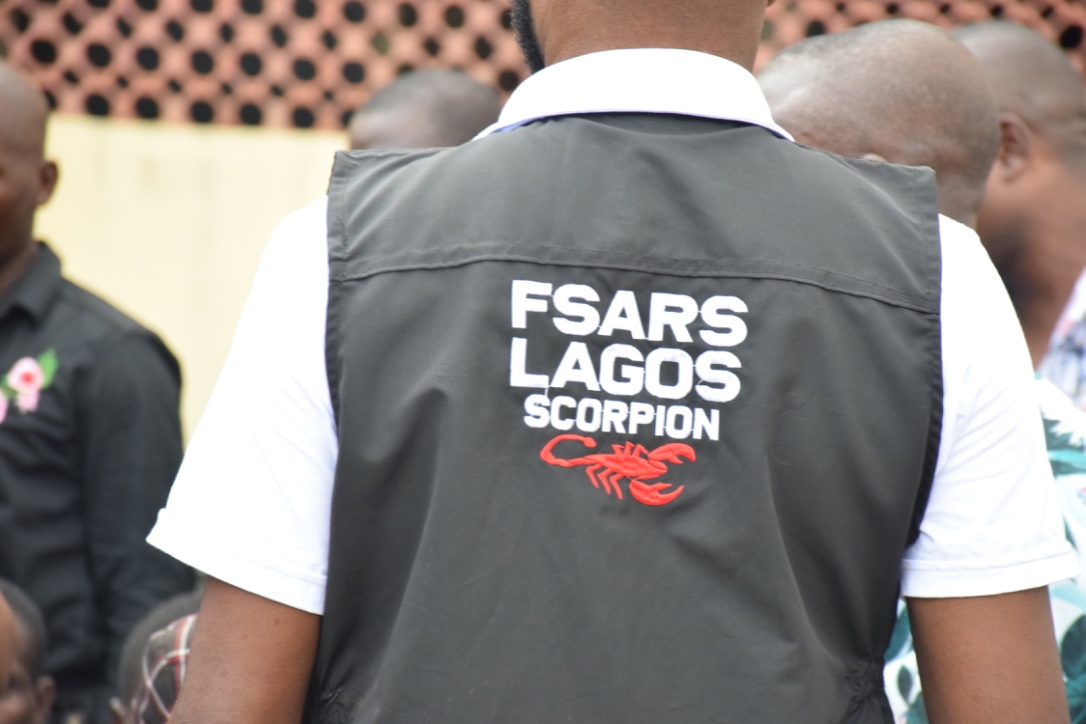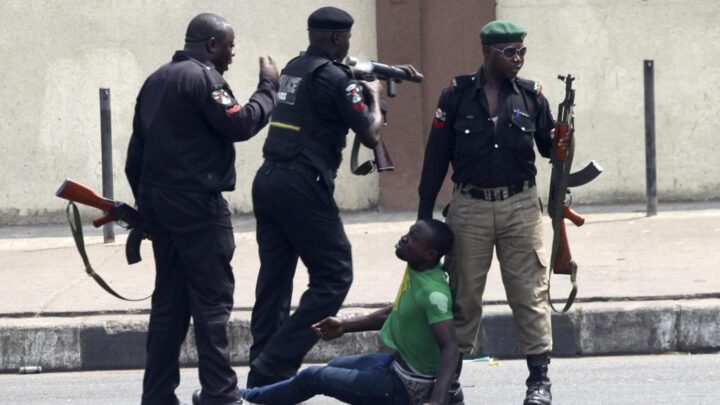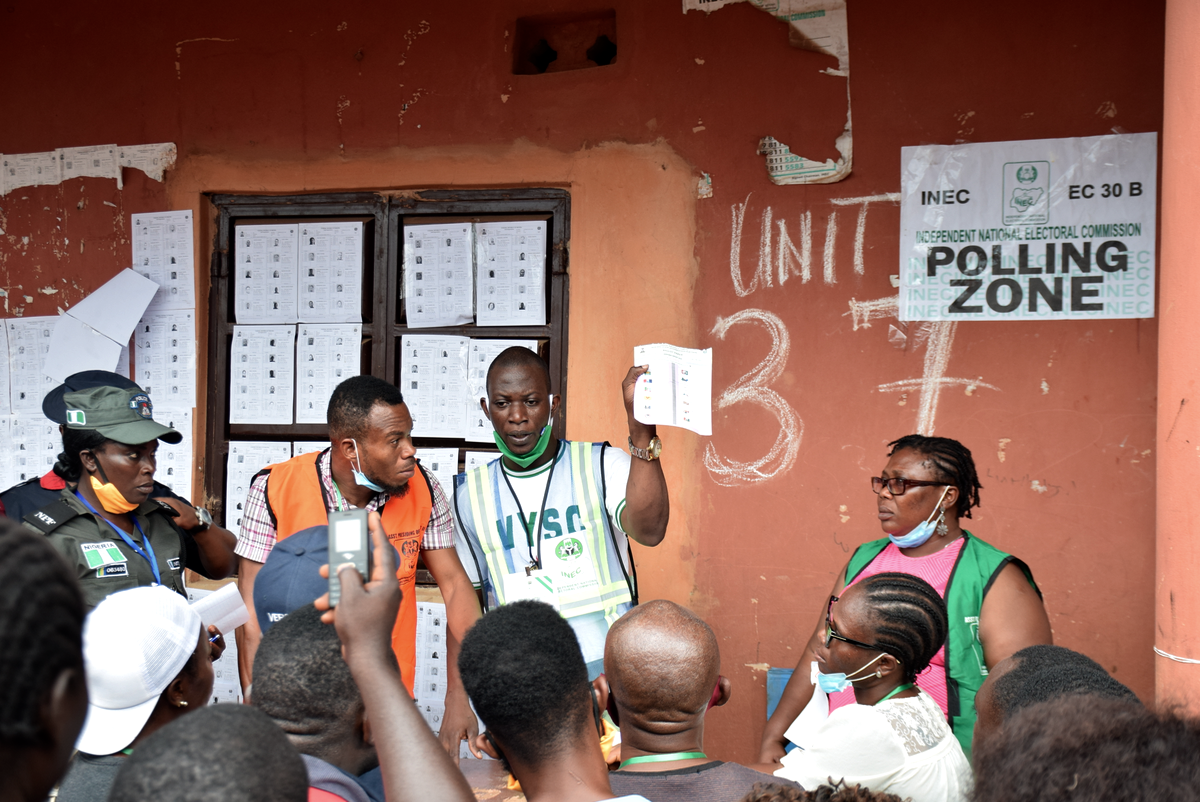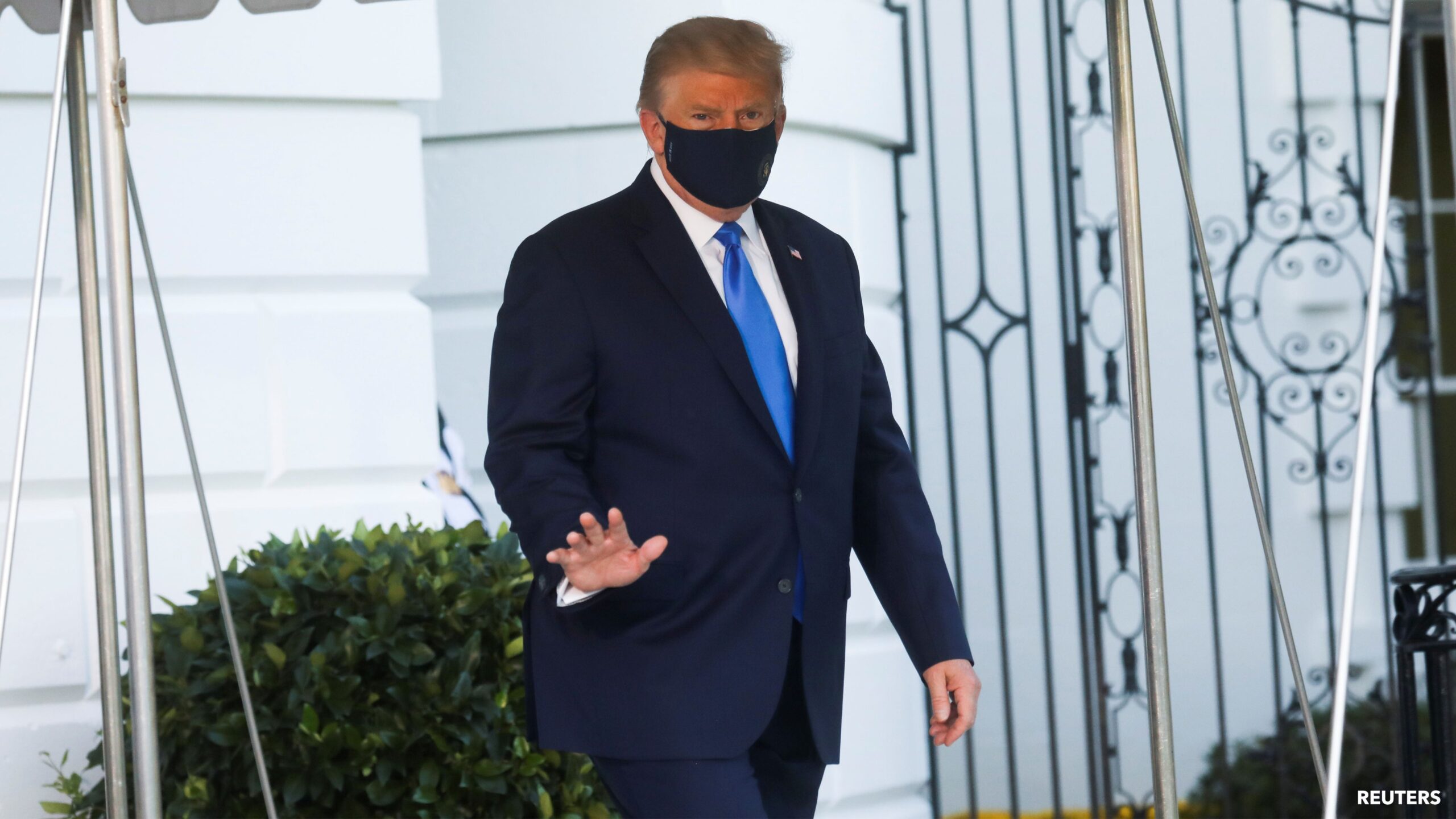If the Special Anti-Robbery Squad (SARS) Unit of the Nigerian Police was established 28 years ago to checkmate notorious cases of armed robbery, kidnapping and other violent crimes, there is no doubt today that that controversial arm of the Police has almost abandoned that salutary objective, and have in place of it, become the most identifiable factor in the death of many Nigerian youth.
Ever since Social Crusader, Segun Awosanya (popularly known as Segalink in social media circles), began his campaign against the notorious Police unit in 2016, barely a month passes by without chilling stories of extra judicial killing of a Nigerian youth by operatives of the unit in controversial circumstances. Today, #ENDSARS has become arguably the most popular and recurrent hashtag on ‘Twitter NG’ and other social media platforms— a simple message that conveys the collective frustrations of many Nigerians and their idea of how to solve the menace of the notorious police outfit.
This campaign has however always met stiff opposition by a segment of the society who would rather vote for the reform, rather than outright disbandment of the police formation. Those who share this view, argue that there are only a few bad eggs within the ranks of the Police Unit soiling its reputation, like most human institutions, such that a total disbandment would be tantamount to throwing away the proverbial baby with the bath water and discounting its efforts and achievement over the years in fighting crime.
While there are merits to this argument, experience however shows that previous institutional restructuring of the Police unit has yielded little or nothing in terms of improved performance. For example, on the 14th of August 2018 following the orders of Vice President Yemi Osinbajo for an “overhaul” of the controversial police unit, the then Inspector General of Police, Ibrahim Kpotum Idris, declared that the unit would be renamed to Federal Special Anti Robbery Squad (FSARS), while a new head of the unit would be appointed with the complement of a human rights desk to document, investigate and prosecute cases of rights abuse by operatives of the unit. But assuming that was ever implemented, it came to nought.
Advertisement
On his own part, the incumbent Police Chief, Mohammed Adamu, when he assumed headship of the Nigerian Police on the 21st of January, 2019 ordered the immediate decentralization of the Special Anti-Robbery Squad. The Unit had always been centralized since its inception in 1992 and was ran from the Force headquarters in Abuja. The Police chief had instructively also directed that the Deputy Inspector General (DIG) in charge of Force Criminal Investigations Department and Commissioners of Police in each State would be held accountable for actions of operatives of the unit. The thinking behind these initiatives was to make the unit more professional, accountable and responsible. However, whether those expectations have been met, is anybody’s guess. In point of fact, my theory is that the police unit has gotten more emboldened in their acts of gross abuse of human rights and professional malfeasance with each attempt at restructuring it.
For context, on 10 August, 2019 while SARS operatives were on a raid in Ijegun to arrest kidnappers in the area, operatives of the unit fired several shots in a bid to subdue the kidnappers and during the course of action a stray bullet hit a pregnant woman, she reportedly died on the spot. An angry mob was said to have lynched two police officers on the spot.
On 21 August 2019, four SARS operatives were arrested and charged with murder after being caught on camera manhandling and then shooting to death two suspected phone thieves in broad daylight. But here is the catch: the two suspects were shot dead after they had been arrested in a pattern that had become all too familiar.
Advertisement
Elsewhere On 5th September 2019, operatives of the Unit in Lekki, Lagos allegedly kidnapped, tortured and robbed a Nigerian rapper Ikechukwu Onunaku. According to publications by Punch Newspaper, the rapper was forcefully made to make several withdrawals at the ATM to pay SARS operatives for doing nothing.
The hands of operatives of the Unit were also seen in the death of one Mr. Tiamiyu Kazeem, a footballer with Remo Stars Football Club of Ogun State on the 22nd February, 2020. Kazeem’s case is particularly disturbing and most unfortunate. He was said to have been pushed from a SARS van on motion after he had been arrested, and onto an oncoming speeding car that eventually killed him. This was after he had been seized from his car, and labeled an internet fraudster (Yahoo boy).
Barely two weeks ago, a graduate of the Institute of Management and Technology, Enugu State, one Ifeoma Abugu, was found dead in the custody of SARS after she had been sexually assaulted and killed by the personnel of the unit in Abuja as alleged by family relatives of the deceased. The SARS hierarchy however claims that Miss Abugu died from overdose of cocaine even as the family of the deceased await autopsy results to reveal the actual cause of death of their daughter.
On 19th September 2020, this time in Rivers State, one Daniel Sleek Chibuike was shot dead by SARS police officers in Elelenwo, Port-Harcourt for alleged theft. According to reports, Sleek and his friend, Reuben were being chased by Operatives of SARS when a mopol, on hearing shouts of “thief”, by the SARS Operatives opened fire on him. He was left to die in the swamp of his blood in public glare.
Advertisement
The latest in the series of brutality by Operatives of the unit is the alleged shooting, on Saturday of a young man in Ughelli, Delta State by SARS Operatives. At the time of writing this piece yesterday afternoon however, reports remain sketchy on the actual circumstances of the shooting, or even the particular law enforcement agency involved. But that did not stop youths of the community to rise up in mass protest against the Police formation in the state on Sunday afternoon as videos circulated on social media suggested. This may not be unconnected with the rumoured involvement of SARS Operatives and the fractious relationship between them and Nigerians generally, particularly the youth.
While that particular incident remain mired in conflicting narratives, it bears stating that it takes nothing away from the well documented record of professional bankruptcy and notorious conduct of agents of the police unit in the discharge of their statutory responsibilities; if anything, it has once again put it in the front burner and reignited the debate whether to disband or reform the Police outfit.
Yet, as compelling and strident as the calls for scrapping or disbanding the Police unit might seem, my dispassionate assessment is that it is largely fuelled by sentiments and probably justified anger on account of the excesses of the Police set-up in recent years. It is nonetheless the weakness of the argument for proscription of the Unit as it takes from hot-anger rather than measured logic.
With so many ungoverned spaces around the country and undue pressure on our security personnel occasioned by the insurgency in the North East, banditry in the North West, ethnic strife and cattle rustling in the North Central to name a few, it can be said that Nigeria is one large crime scene greatly in need of all the security it could afford. But that is not a license for the same security operatives to turn against the same set of people it was billed to protect and defend. If anything, it calls for greater sense of responsibility and display of professionalism by the officers and men of the Force. This once again triggers the question of reform however time worn. Perhaps for the first time, the Nigerian Police is better positioned ideologically, to enact a holistic course correction in terms of the activities of the notorious police unit and other tactical teams in the Nigerian Police framework in the light of the recently passed Police Act, 2020 which substantially is a reformative legislation and the first of such amendment to the Police legal framework since 1943.
Advertisement
In this wise, the somewhat strong worded statement by the Force PRO Frank Mba, yesterday evening, banning all FSARS, STS, IRT and other tactical Police squads operating at Federal, Zonal and Command levels “from carrying out routine patrols and other conventional low-risk duties-stop and search duties, checkpoints, road blocks, traffic checks etc” seems to do it, at least in principle.
The part of the statement admonishing all Tactical Squads “from the invasion of the privacy of citizens particularly through indiscriminate and unauthorized search of mobile phones, laptops and other smart devices” is quite instructive for a number of reasons. In the many reported cases of professional excesses by agents of these tactical police formations, the resistance by members of the public from having their phones or private wares searched has often led to the altercations that result in killings.
Advertisement
This is particularly the case with the youth who are often the victims of the excesses of these notorious police cult often from bogus suspicions of their being internet fraudsters. In a report by Amnesty International released in June, 2020 the global human rights watchdog found that operatives of SARS targeted young men who are between the ages of 17 and 30. “Young men with dreadlocks, ripped jeans, tattoos, flashy cars or expensive gadgets are frequently targeted by SARS“, the Organization said. Thus, a statement from the highest command of the Police proscribing such activities would appear to be responsive. But it would be foolhardy to be too optimistic.
Anyone familiar with the Nigerian Police problem would have known that the statement released by the Police authorities yesterday is not new. There is barely any Inspector General of Police in the last 5-10 years that has not issued such strong worded statement if you like. The elephant in the room have always been the dynamics of following them to the latter. My theory is that there is no way we could make any headway at that, without making sure errant members of the force who flout these directives are squarely named, shamed, dismissed from the Police and ultimately prosecuted in line with extant laws. When there are no consequences for unethical behavior, impunity becomes the unwritten rule.
Advertisement
There are however flickers of hope here and there that things may take a positive dimension going forward with the arrest of two operatives of FSARS and their civilian accomplice by the Lagos State Police Command for acts of professional misconduct including extortion and intimidation of innocent citizens; a regular course in the menu of the Nigerian Police experience. But to be more systemic, the Police hierarchy must endeavor to institutionalize this disciplinary response so that it can be far reaching and the outcome, more predictable. This is important in shoring up the lost confidence of the public in the Nigerian Police as we know it today.
That said, the specter of a rogue and unprofessional police in the trajectory of any Nation is better imagined. One important lesson the world has learnt in 2020 in the wake of the murder of George Floyd— a Black-American by a White Police Officer in concert with two of his colleagues in the United States, is how unprofessional behavior of police officers can eventuate mass protests, if not a revolution, with attendant consequences for lives and properties. Already we saw patterns of that yesterday in the actions of the youths of Ughelli, in Delta State who took to the streets in mass protests against the Police over the alleged shooting of a young man in the community by suspected SARS operatives. On social media, rumors are rife of the killing of at least five operatives of SARS in that protest.
Advertisement
A golden thread that runs through the 90-year history of the Nigerian Police is controversy. Several analysts have attributed this to the colonial roots of the Force. Their thesis is that the British colonialists used the Police as an instrument of coercion in the colonial project and left behind that trait in the fabric of the Force. While that argument appears somewhat compelling, it is not difficult to disentangle its false premises. For one, it has been 60 years since the British colonialists left these paths, and between then and now, the Nigerian Police has transformed tremendously to become the behemoth it is today. In my opinion, that is more than enough time to have lost any such brutal and inhuman colonial DNA. If that has not been done, it is because the corruption that looms large in that institution has been a booming enterprise from which its successive leadership has profited over the years. To that extent, the “colonialist theory” is a mute point howsoever regurgitated.
When SARS was established as a tactical Unit in the Nigerian Police 28 years ago, its objective was clear as crystal: tackle notorious crimes of armed robbery, kidnapping and other violent crimes. And so the question of whether we should #ENDSARS or #REFORMSARS to my mind, would turn on the consideration of how well, operatives of the tactical squad have functioned within the parameters for which the squad was set up over the years. As at today, the word on the street is that it has veered off that mandate. But I would argue that mere veering off its foundational mandate does not detract from its usefulness in the grand scheme of Nigeria’s tendentious security situation. And so faced with the option of scrapping and/or disbanding SARS on the one hand; and committing to a deliberate, intentional and holistic reform of the Police outfit on the other, I would vote for the latter. And not just SARS, but the entire Nigerian Police architecture for which SARS is only but a microcosm.
Raymond Nkannebe, a Legal Practitioner and Public Affairs Commentator, writes from Lagos. He tweets @raynkah.
Views expressed by contributors are strictly personal and not of TheCable.
Add a comment







